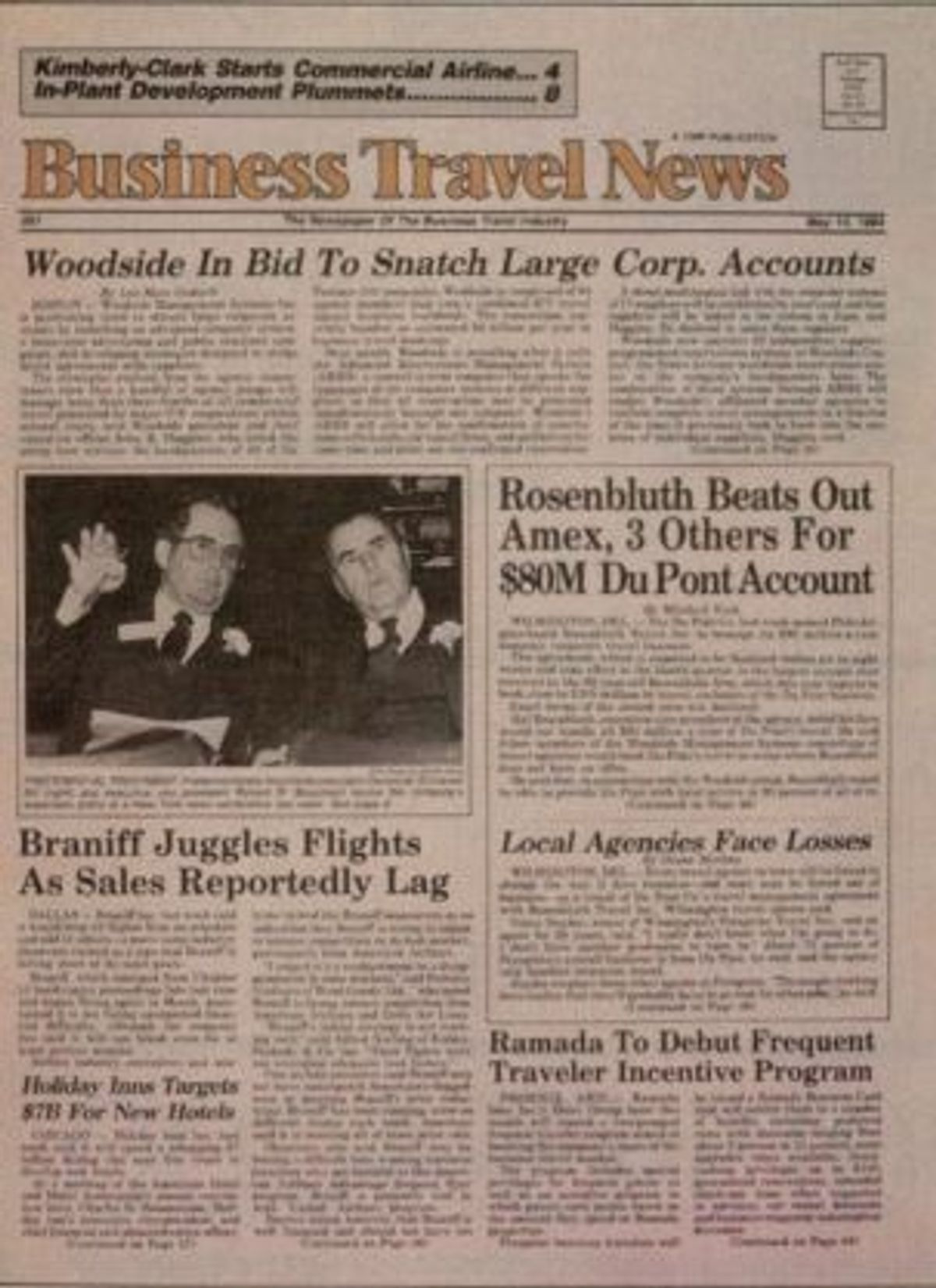Travel
1984: Computerizaton & Consolidation Start Modern Corporate Travel Mgmt.

There was a lot of stuff going on in 1984, and in May of that year
Business Travel News was born.
To give an idea of why I, personally, need a history lesson
in corporate travel management, here’s what was hitting in my world that year:
Madonna was lighting up controversy in a wedding dress at the first MTV Video Music
Awards, very close to where I would sit in a BTN office 20 years later. I was
reading Charles Dickens’ a Tale of Two Cities in my 6th grade
English class—not knowing how fortunate I would be in my life to travel on
business many times to both London and Paris, among many other incredible
cities.
In between re-runs of Scooby-Doo, which I liked to watch after school
while eating chips (in the living room; ruh-roh—please don’t tell my mom), I
also caught glimpses of what was going on in the wider world. The latter was
largely thanks to my parents, who had pitched their lot with cable television, along
with 46 percent of American households by 1984. Check out the highlight reel
for that bigger picture.
1984: History Hightlight Reel
Apple ran a Super Bowl ad for its first Macintosh computer
set in a dystopian world inspired by George Orwell’s novel 1984; it was directed
by Ridley Scott. The first Macs went on sale two days later.
Iraq is accused of using chemical weapons against Iran,
killing 2,500 people; a United Nations investigation finds compelling evidence of
mustard gas and nerve agents; it condemns the practice. U.S. President Ronald
Reagan calls for chemical weapons to be internationally banned.
A bomb explodes in the baggage area of Heathrow Airport
Terminal 2; wounding 23 people. Anarchy group The Angry Brigade claim the act,
but British officials identify Libyan groups potentially associated with violent
demonstrations that took place days prior.
Bruce Springsteen releases Born in the U.S.A. album.
Sarajevo hosts the Winter Olympics; Los Angeles hosts the
Summer Olympics; Russia boycotts the latter.
Virgin Atlantic makes its inaugural flight from
Gatwick Airport in London to Newark, New Jersey.
Beverly Burns makes her maiden voyage as the first female
captain of a Boeing 747.
British geneticist Alec Jeffreys develops genetic “fingerprinting,”—the
ability to identify people by their DNA. It eventually allows forensic
scientists to assist with solving crimes (and precipitates dozens of investigative
crime shows on television).
Television series Happy Days is cancelled after 11
years.
For corporate travel management, 1984 delivered some watershed
moments, with a ton change vibrating underneath the surface of the industry. Computerization—or
what we might today call ‘digitization’—was a big question mark for many players.
Travel management companies, in particular, were grappling with transitioning highly
manual, person-to-person services into a new digital age. Investing in untested
technology looked like a risk, and the margins in corporate travel—then as now—looked
too thin to make one-off investments that might not prove durable.
But the companies who did it well were winning what was just
at that time coalescing into now-familiar ‘corporate accounts’—some of the largest
of which were names like DuPont, Sperry, I.B.M. and Xerox.
Two lead stories on Business Travel News’ first cover touted
Rosenbluth International’s coup in winning $100 million corporate client
DuPont.










